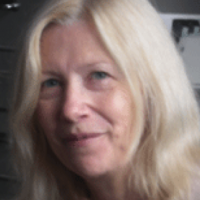
1 April 2009:
Society today is witnessing an ongoing paradigm shift in gender relations
Jackie Scott
"Society today is witnessing an ongoing paradigm shift in gender relations," said Professor Scott. "We have gone beyond the male breadwinner/ female homemaker post-war family. Dramatic changes have taken place in the workforce and enormous progress has been made in policy, but a gap remains in women’s attainment in the world of paid work, and this relates to the unequal division of unpaid work in the home."
Nine projects funded through the Network ask questions such as why has the gender wage gap proved so difficult to overcome? Do women who play an equal role in the workforce do so at the expense of family life? How have career paths for men and women changed across the generations? What are young people’s aspirations for gender equality? How do families trade off conflicts between time and money? What steps have corporations taken to support equity goals?
In Cambridge, Professor Simon Deakin, Programme Director in the Centre for Business Research at Judge Business School, is addressing gender inequality through progressive human resource management in the workplace. And Professor Scott is examining shifts in public opinion about women’s work–family balance.
"I’m a tremendous fan of Network grants," said Professor Scott. "From the very start, all members bought into the goal of talking to each other, informing each other’s work and contributing to joint outputs. The Network has given us the critical mass and diverse expertise needed to create a really strong factual understanding of gender equalities, what choices we make as adults, and how we might shape our children’s lives at the start of the 21st century."
Originally published here by the University of Cambridge. This work is licensed under a Creative Commons Licence.
Image: 'Stacking practice bombs,' by State Library of South Australia [CC BY 2.0]

